It was 1999 and the dot-com bubble was about to burst. Corporations were scrambling to address new legal challenges online. Napster was testing the music industry. And at Harvard Law School, what is currently known as the Berkman Klein Center for Internet & Society was creating a clinical teaching program specializing in cyberlaw.
This clinical program, initially formed for a handful of students from Jonathan Zittrain’s Internet Law class, became the foundation of the Cyberlaw Clinic. It was the first of its kind, and the 2019–2020 academic year marks its 20th anniversary.
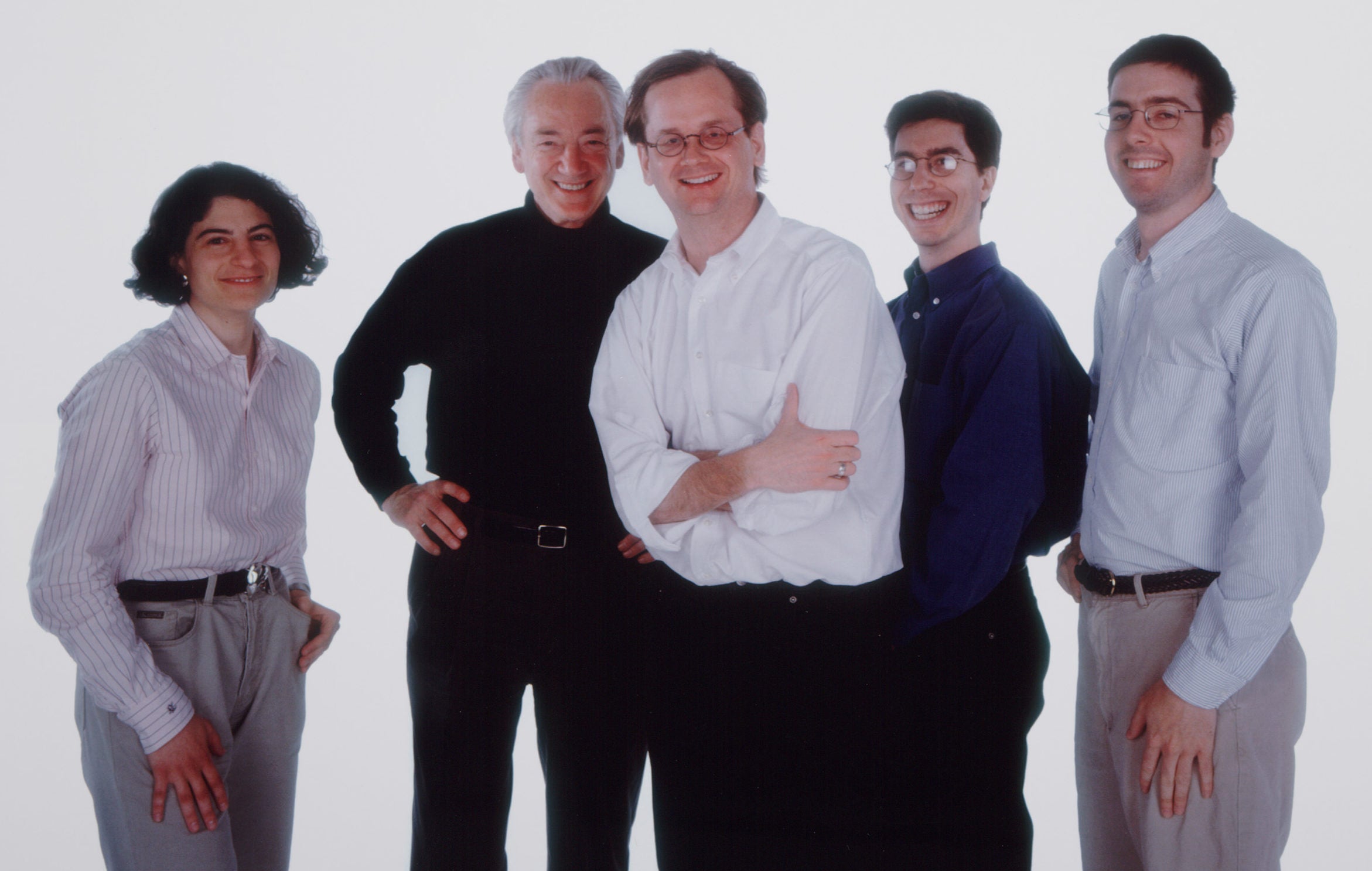
The early days-circa 1999: The Berkman Center for Internet & Society began as a seminar in the late 1990s. “People who knew something talked together, totally informally,” recalled Professor Charles Nesson ’63 (second from left), in an interview in the Summer 1999 issue of the Harvard Law Bulletin. That first cohort included Jonathan Zittrain ’95 (second from right), now the George Bemis Professor of International Law and faculty director of the Berkman Klein Center for Internet & Society, and Lawrence Lessig (center), now the Roy L. Furman Professor of Law at Harvard Law School, soon joined by Wendy Seltzer ’99 (far left), now strategy lead and counsel to the World Wide Web Consortium at MIT, Chris Kelly (not pictured), formerly Facebook’s chief privacy officer, now an investor, and Alexander MacGillivray ’00 (far right), who served as general counsel of Twitter and later as deputy U.S. chief technology officer during the Obama Administration.
“As public interest technology became a more and more important theme in our society, it became clear that we needed to be training lawyers to do this important work. Nobody else was doing it, and I think it was really one of the most important things that the Berkman Klein Center did in its early days because it really did help to support a growing area of practice,” says John Palfrey ’01, then-executive director of the Berkman Klein Center and current president of the John D. and Catherine T. MacArthur Foundation. “People who have been trained in the clinic have now gone on to extremely important roles in private practice, in governments, in non-profit practice. And we’re really super excited to see how it’s grown and evolved over 20 years, which seems impossible, but it’s true.”
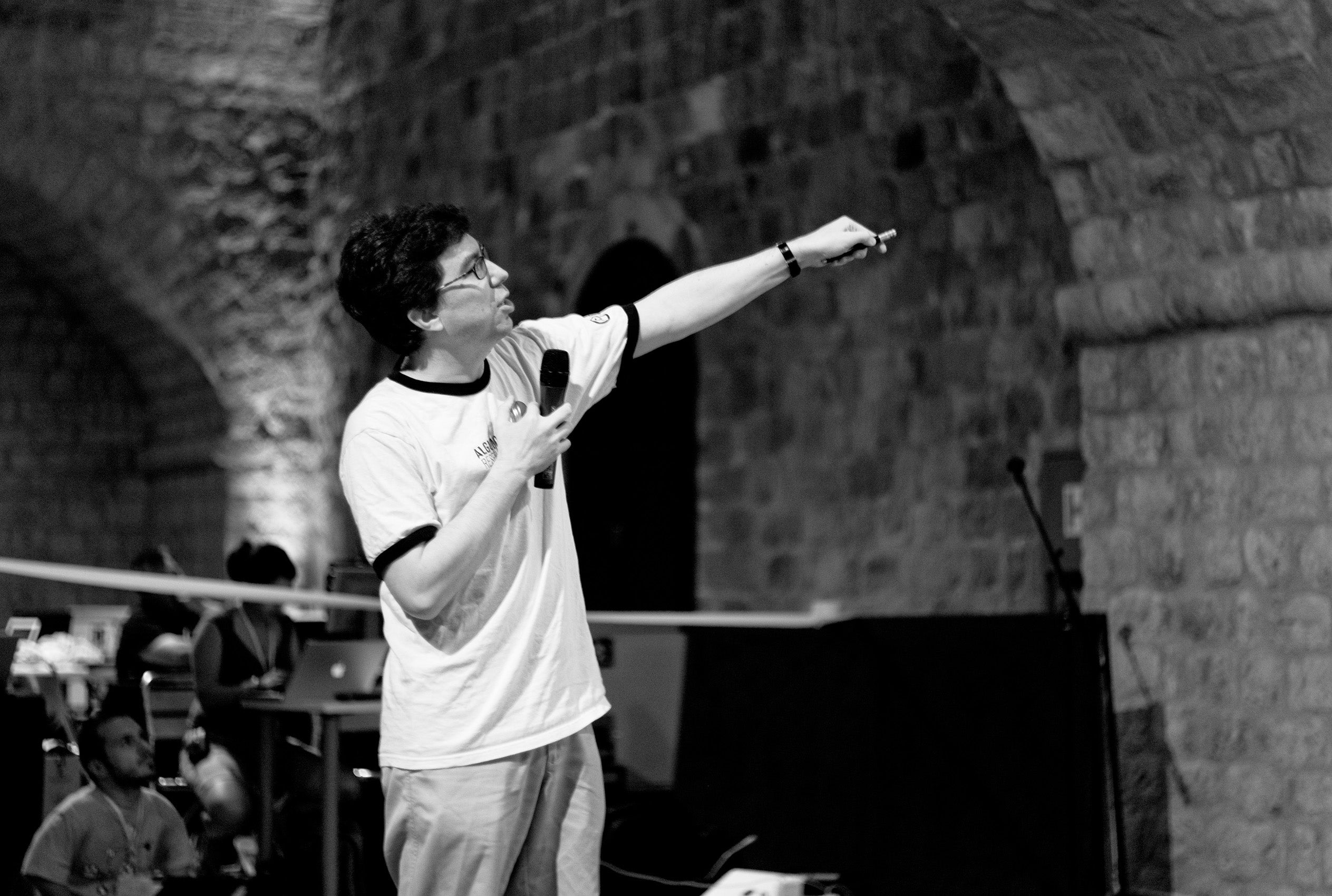
The clinic provides high-quality, pro bono legal services to clients on issues relating to the internet, technology, and intellectual property. Students earn course credit by working on real-world litigation, client counseling, advocacy, and contractual projects under the supervision of experienced attorneys.
Over the past two decades, students have supported clients on issues such as copyright, online speech, litigation, intellectual property, privacy, online safety, free speech and media law, digital civil liberties, government innovation, communications infrastructure, regulatory compliance, and more.
“The clinic was born at a very particular moment in the late nineties where a lot of attention was focused on the so-called ‘copyright wars,’ and Berkman and the clinic were in the midst of that in the early days,” says Christopher Bavitz, the WilmerHale Clinical Professor of Law and managing director of the Cyberlaw Clinic. “We still do a lot of copyright work, but our docket has expanded a lot to include privacy, speech, and other issues that have direct ties to technology’s impact on justice and fundamental rights.”
Most clients are individuals, small startups, nonprofit organizations, academics, and occasionally government entities. For example, the clinic works with Creative Commons, a nonprofit that provides a very broad set of licenses for people to license their works, and was incubated by the Berkman Klein Center in 2001. “The clinic has continued to do work with Creative Commons and also with others who are using Creative Commons licenses or open source software licenses. I think that’s definitely in the clinic’s DNA in a way,” Bavitz says.
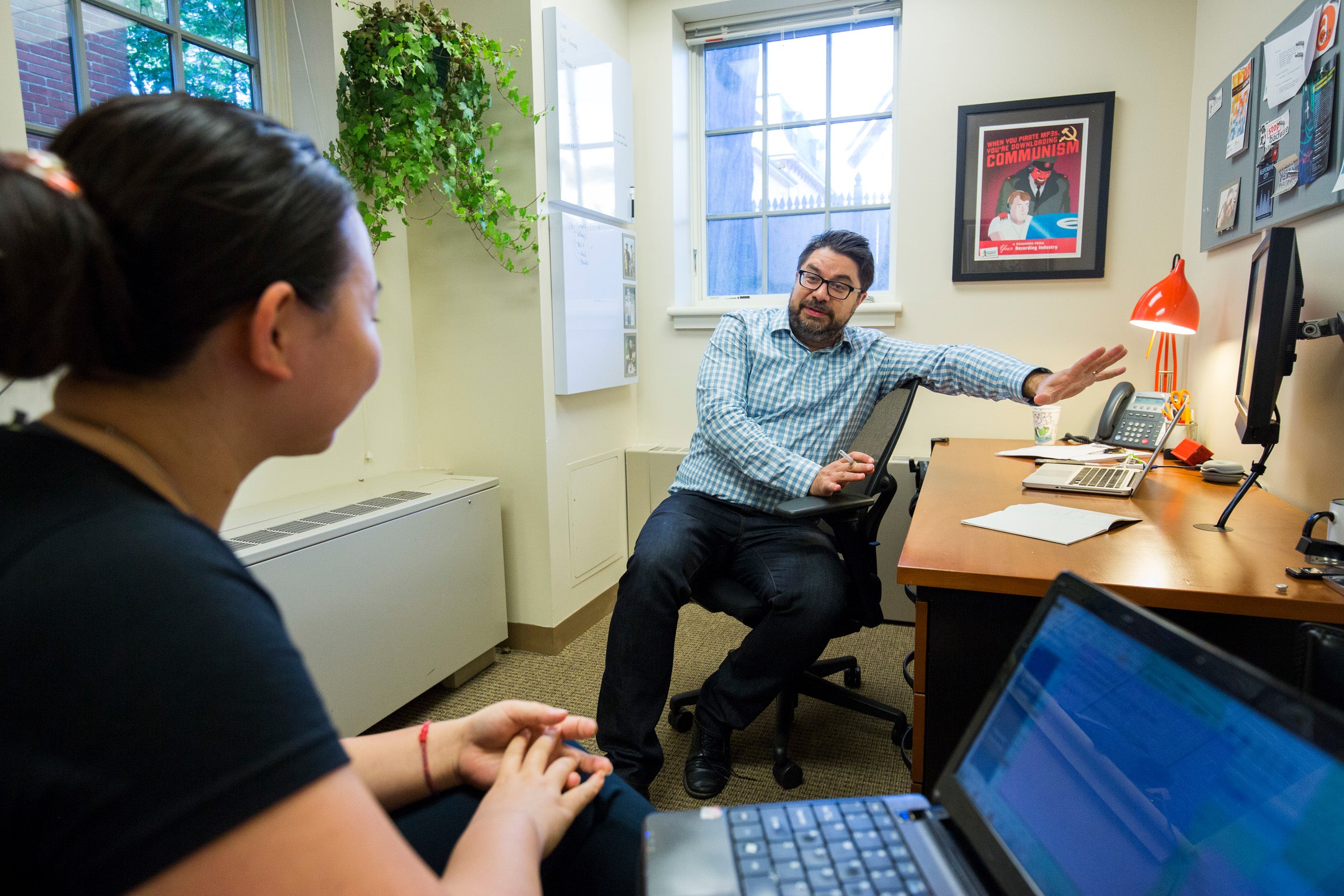
Chris Bavitz, WilmerHale Clinical Professor of Law, is managing director of the Cyberlaw Clinic.
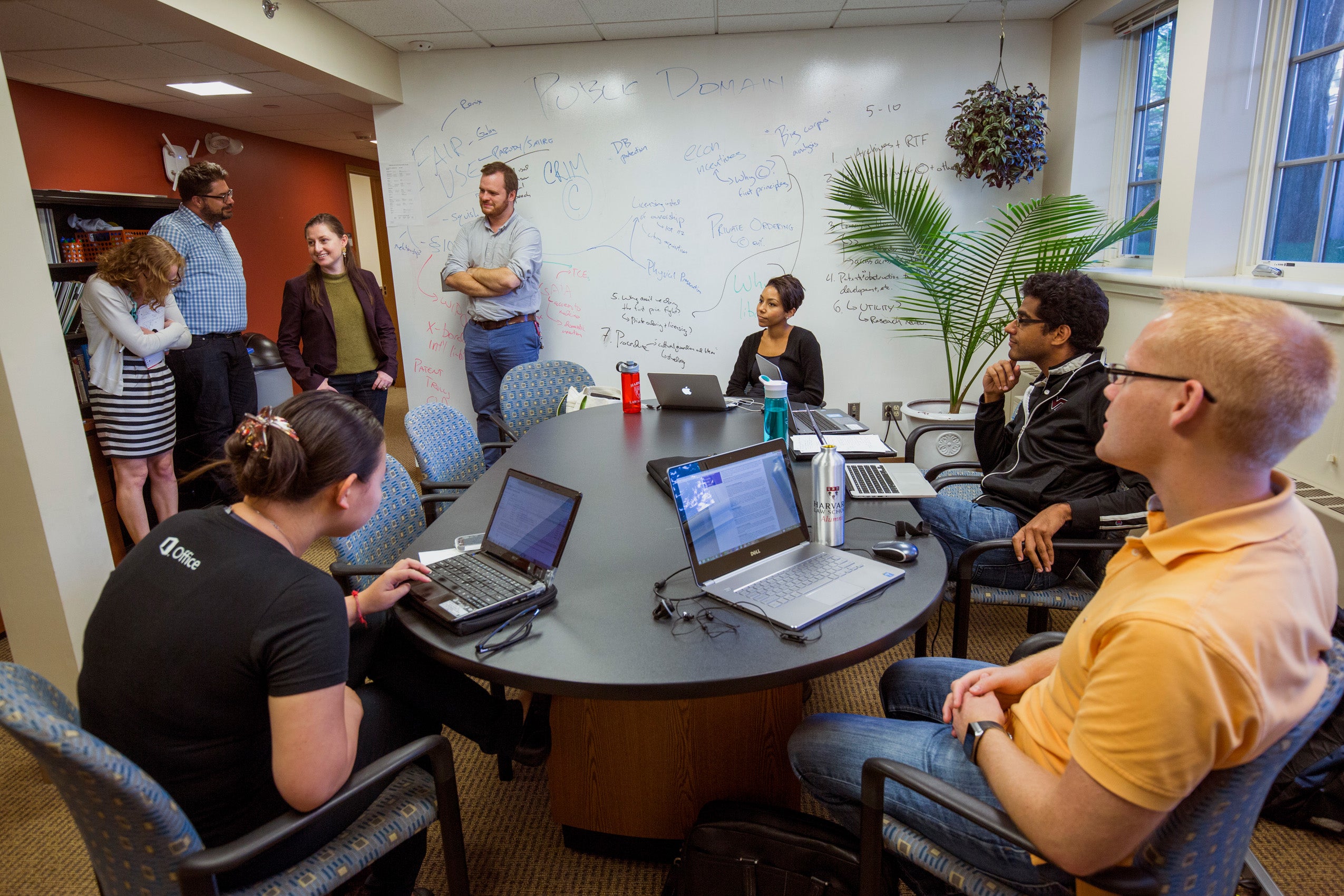
Kendra Albert ’16 worked in the clinic during their third year at HLS. Now a clinical instructor, Albert leads students projects related to computer security, software preservation, and the First Amendment. One of the things they enjoyed the most, Albert says, was working with clients on specific legal needs.
“I’m continually trying to find ways to give my students now those direct client experiences that allow them to sort of have that same reaction. Which is ‘I can actually help people solve problems,’ rather than ‘This is an academic exercise,’” Albert says. “I think that’s what’s special about the clinic—as opposed to other parts of the law school—is that you have the opportunity to both do focused technology law work, and to serve clients who have particular legal needs.”
In addition to working with clients, students are actively involved in writing and filing amicus briefs for current cases related to cyberlaw, the Fourth Amendment, and more. In the fall, for example, a pair of students worked with mathematician Cathy O’Neil on a comment about algorithmic discrimination for the United States Department of Housing and Urban Development.
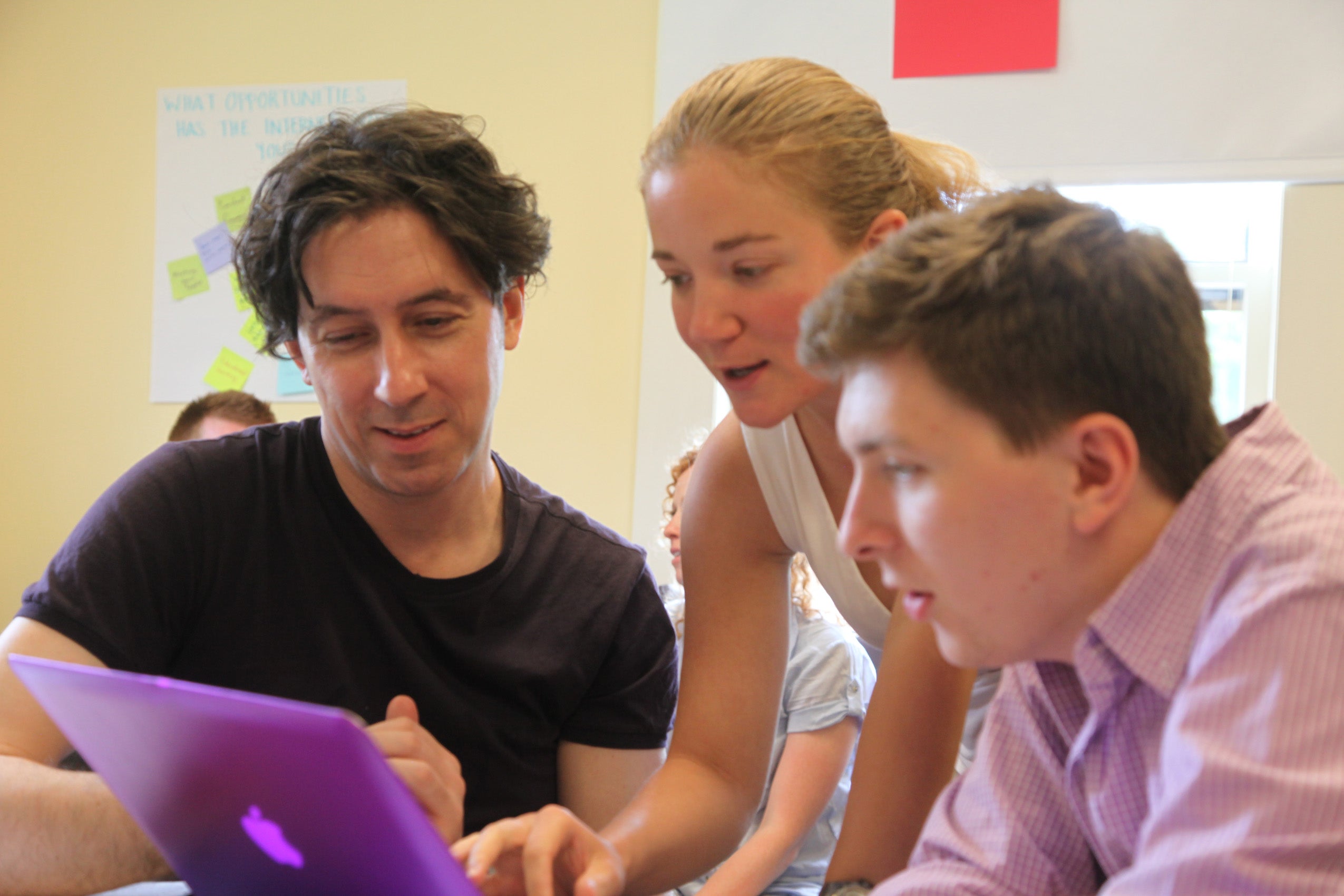
When the Berkman Klein Center launched the Ethics and Governance of AI Initiative in 2017, the Clinic formed the Algorithms and Justice track of the Initiative. With logistical and research support from HLS students, the Clinic leads the AGTech Forum, a series of conferences for state attorneys general and their staff on pressing regulatory and enforcement issues concerning privacy, cybersecurity, and most recently, artificial intelligence.
